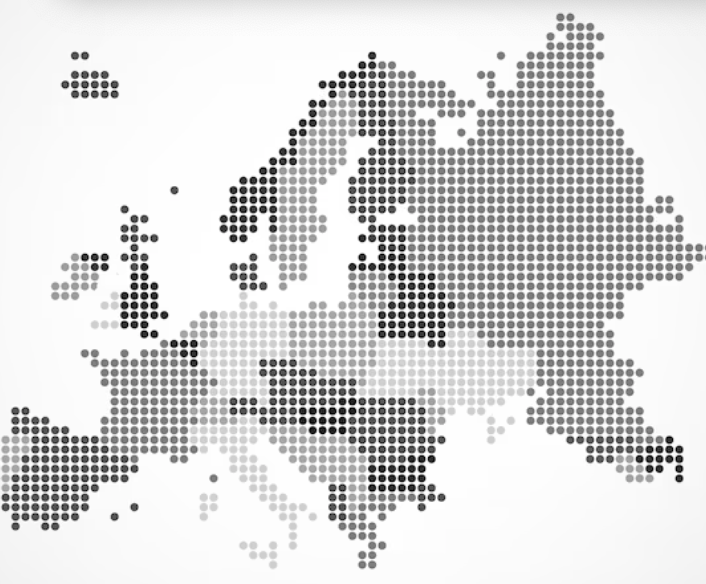# EU Strengthens Defense Strategy as Brussels Left Out of Ukraine Talks
### $SPY $NATO $EU
### #EU #UkraineWar #Defense #NATO #Geopolitics #MilitaryStrategy #EuropeanUnion #RussiaUkraine
## EU Ramps Up Defense as Ukraine Talks Move Forward Without Brussels
The European Union (EU) is reinforcing its defense strategy amid mounting geopolitical tensions, particularly as Brussels finds itself excluded from key Ukraine peace negotiations. The decision reflects mounting frustration within the bloc as it struggles to establish a central role in diplomatic and military affairs related to the Russia-Ukraine war.
With Russia’s offensive showing no signs of abating and NATO playing an increasingly pivotal role in facilitating international discussions, the EU is reassessing its approach to military preparedness, strategic autonomy, and defense spending.
—
## **Brussels Sidelined: What It Means for the EU’s Influence**
The EU has aggressively sought a more prominent role in global security, but its exclusion from Ukraine negotiations signals a diminished diplomatic footprint. France and Germany, two of the EU’s most powerful member states, have historically played significant roles in mediating conflicts. However, talks now appear to be driven by NATO allies, with direct involvement from the U.S., Ukraine, and Russia.
This lack of direct EU participation raises concerns about the bloc’s influence in long-term peace talks, especially as its economic and humanitarian support plays a vital role in Ukraine’s survival. Nevertheless, Brussels is responding with stronger defense initiatives to assert its relevance in the shifting geopolitical landscape.
—
## **EU’s Defense Strategy: Increased Military Spending & Strategic Partnerships**
Facing new security threats, the EU is stepping up efforts to bolster its defense infrastructure. Some of the latest initiatives include:
– **Defense Budget Increases** – Several EU nations have raised military spending targets, aligning more closely with NATO defense commitments to meet or exceed 2% of GDP.
– **European Defense Fund (EDF) Expansion** – The EU is expanding funding for military research and technological advancements, supporting innovation in European-made defense equipment.
– **Strengthening NATO Coordination** – While sidelined from talks, the EU is leveraging its NATO ties to enhance military deployments, intelligence-sharing, and coordinated exercises.
– **Joint European Defense Initiatives** – Countries like France and Germany are leading efforts to develop autonomous EU defense strategies, reducing reliance on U.S-led initiatives.
These efforts underscore Europe’s desire for greater military self-sufficiency while maintaining transatlantic partnerships.
—
## **Market Impact: How Defense Stocks & European Markets React**
The EU’s bolstered military initiatives are having a noticeable effect on European financial markets. Defense contractors and military technology firms are experiencing a surge in investor interest. Key developments include:
– **Rising Defense Stock Prices** – European defense companies like Airbus ($AIR.PA) and Rheinmetall ($RHM.DE) have seen stock prices climb amid heightened defense contracts.
– **Increased Government Defense Orders** – As defense budgets expand, major suppliers across aerospace, cybersecurity, and weaponry sectors are benefiting.
– **EU Market Volatility** – While investors are watching geopolitical tensions closely, the shift toward military strength signals potential for long-term growth in the European defense sector.
For investors, the evolving EU military landscape presents opportunities, particularly in security, surveillance, and defense technology firms.
—
## **The Road Ahead: What This Means for Global Stability**
The EU’s push for stronger defense capabilities reflects its commitment to increased security and strategic influence. Although Brussels remains excluded from the latest Ukraine talks, its military and economic efforts ensure its role in shaping Europe’s defense future.
Looking ahead, global leaders will closely monitor how the EU balances autonomy with NATO collaboration and whether these moves bolster the bloc’s geopolitical clout. As the war in Ukraine continues, the EU’s next steps could redefine its place in global security discussions.
**Stay updated as the EU’s defense strategy unfolds and geopolitical tensions evolve.**







Comments are closed.